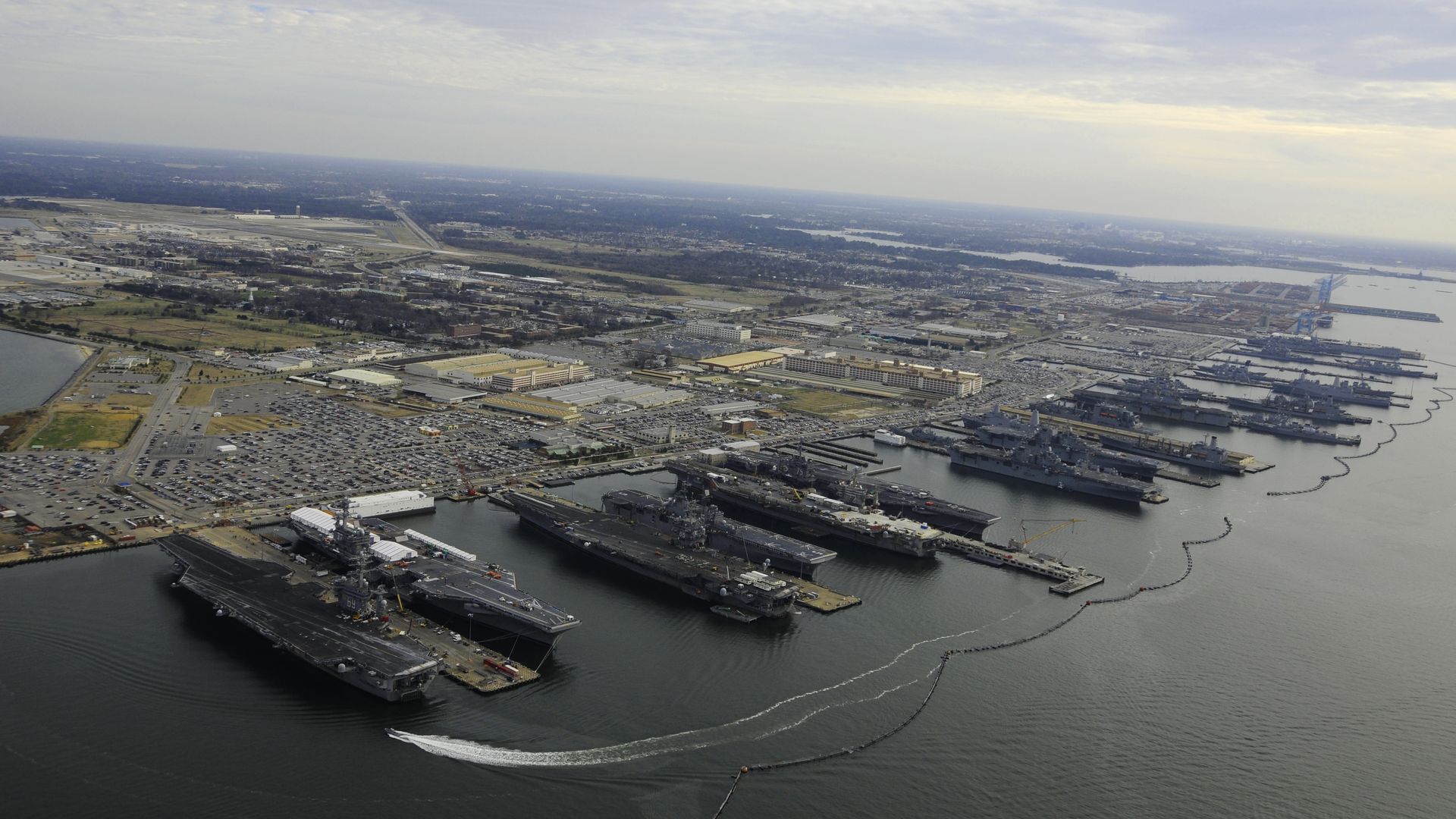Updated May 17, 2018 - Energy & Climate
Expert VoicesIgnoring climate change only compounds its national security risks
Add Axios as your preferred source to
see more of our stories on Google.

Aircraft carriers in port at Naval Station Norfolk, Virgina, which is prone to floods that have worsened with sea level rise. Photo: MC2 Ernest R. Scott/U.S. Navy/Handout/Navy Media Content Service/Corbis via Getty Images
